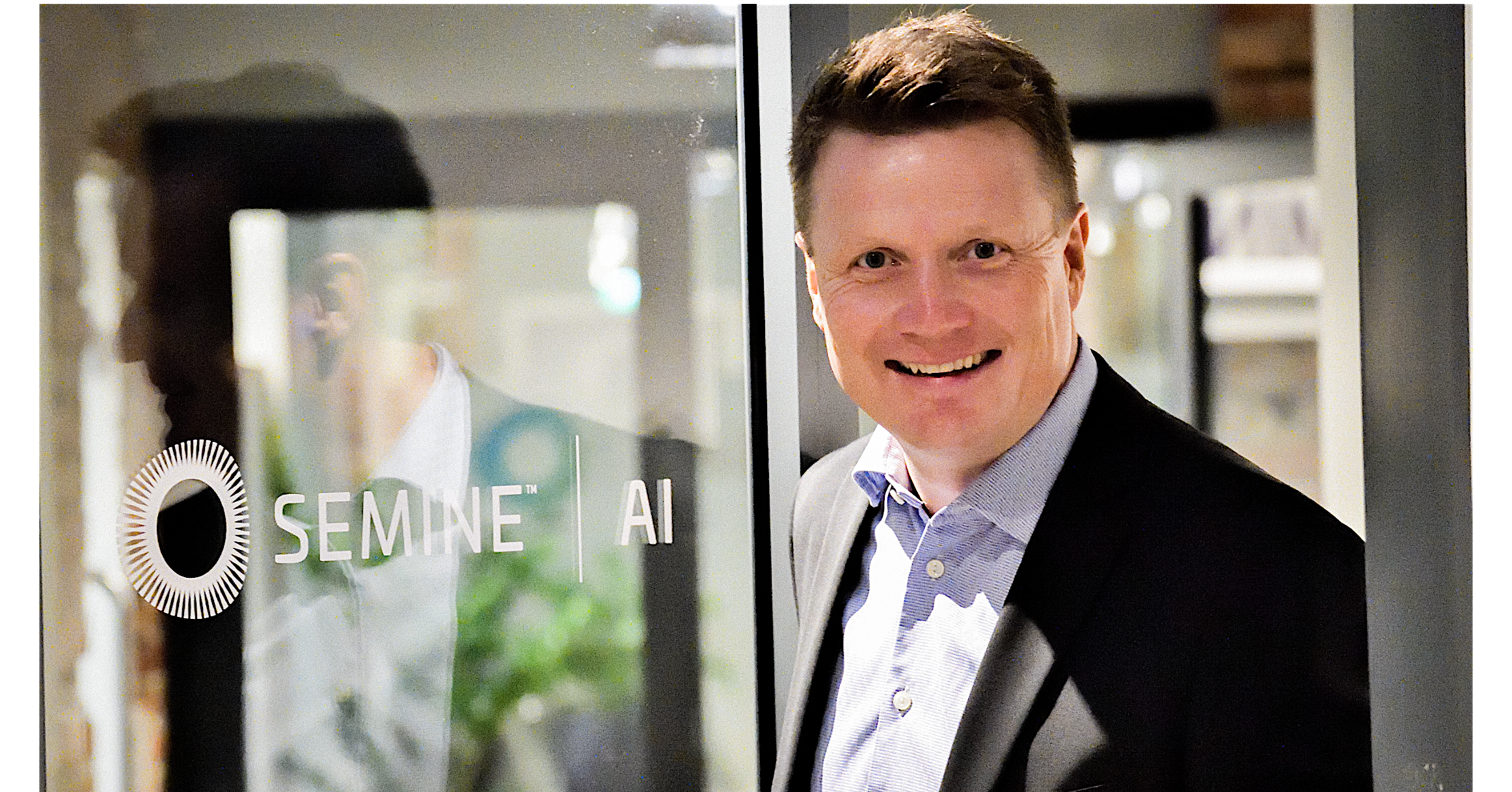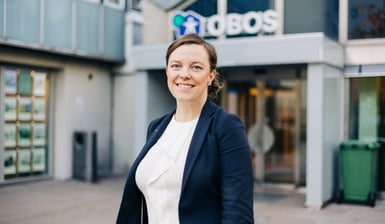.png)
Changing the standard for the finance function with AI
KAPITAL 21. OCTOBER 2022. The complete article is replicated in full below.
With artificial intelligence and machine learning, Semine is moving the focus from punching data to analysing data. Now Bjørn Røsten is taking the helm of the company, which is aiming to replace repetitive manual accounting tasks with no-touch, full automation.

– It is the value for our customers that is the most important thing for me, says Røsten.
He has closely monitored the digital trends within accounting and the finance function over many years, and is in no doubt.
- There is still enormous potential to benefit from digitalisation and modern technology. Most organisations have started digitalising their finance function, but still do lots of things manually. This is a conservative industry. The fascinating thing about the SEMINE platform is that it leverages artificial intelligence to enable quicker, simpler and more accurate work.
Increased pressure to deliver
Røsten has a technical background, coming as he does from a position as Managing Director at Unit4, where he was also responsible for global sales. Before that, he was Managing Director of ReadSoft Norge, and he also held several management positions at Basware. These are all companies that supply software within the fields of finance and accounting.
I was part of the first wave of digitalisation within the finance function. What we have seen very clearly over the last few years is that the technology has progressed so far that it is the right time to take digitalisation one step further. Following the pandemic, there has been an even greater demand for efficiency and accessibility.
- CFOs are experiencing greater pressure to deliver more, quicker and with higher quality, at lower cost. That can’t be achieved by asking employees to work longer hours, or to work harder, says Røsten.
That’s where the SEMINE platform comes in. We are now entering a period of higher costs and steadily increasing requirements. However, by means of automation and insight we will help all those under pressure to reduce costs or who are experiencing increased external and internal demands for efficient operations, reporting and compliance,” he continues.
The customer grows with the system
Semine supplies the SEMINE platform, a SaaS solution that automates the processing of incoming invoices, right down to item-line level. This frees up a great deal of time and generates considerably more detailed data for insight and analysis than other solutions currently on the market. Finance department staff can then spend their time on other tasks that add more value. So far, more than 8,500 companies have adopted the solution, including high-profile customers such as KLP, Kaffebrenneriet, OBOS, Avarn Security, NAF and Norlandia Health & Care Group.
OBOS’s Director Digitalization of Financial Services, Hilde Rannem Rostad, reports greatly improved insight into purchasing and line data, along with the freeing up of time across departments and projects, since the company adopted the SEMINE platform in January 2021.
– We now have an automation level of 83 per cent, we have freed up more than six FTEs, and we have very satisfied users, Rostad says (picture above)
Creating something new
The incoming CEO, Bjørn Røsten, is looking forward to joining a company that focuses so much on innovation.
What fascinates me is the value we can add for our customers. For the user, the system must be intuitive and easy to adopt. Adoption needs to be simple and seamless, so it is important to us that the customer can grow into the system, start using it and improve over time.
- With SEMINE, you can eliminate 70 to 90 per cent of the manual tasks.
People who work in accounting, as a rule, have an awful lot to do. There are monthly accounts, annual accounts, reports and so on. But this technology gives employees the opportunity for professional development instead of ploughing through time-consuming, repetitive transactions. This also makes the company a much more attractive employer, making it easier to retain employees and to recruit new staff, whether experienced or inexperienced, says Røsten.
Attractive employer
The fact that Semine is a growing Norwegian company with ambitions to become a world leader in its field was a key factor in Røsten accepting the position as CEO.
- We are the ones setting the standard in the market, and we will be a leading player in this process and technology – not just nationally, but internationally. Our vision is for people to be able to spend their time on tasks that add value. Instead of punching data, the focus will change to analysing data. We also want to enable our own employees to grow with the company, states Røsten.
.png?width=688&height=430&name=kontrast%20(1).png)
- We need to develop the market and the customers, so we need to be at the forefront. We can’t come in and deliver 80s technology to a customer who is looking towards 2030, he adds.
At present, Norway is Semine’s primary market, but the company is making good progress with its international projects. From next year, the plan is to grow further, with both Norwegian and international customers. Røsten has clear ambitions for continued growth for the Norwegian IT company.
- There will be a major focus on international customers, initially within Europe. And we will go from high-touch to no-touch invoice processing. The vision is to get to the point that you no longer need human intervention on these tasks, concludes Røsten.

